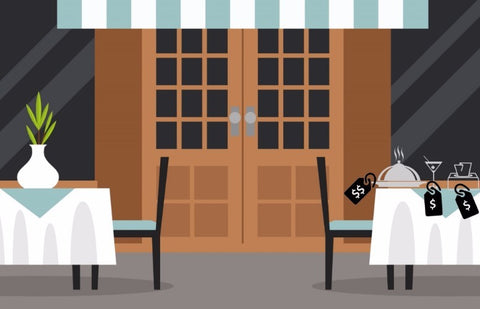
Recently I went to a diner and ordered a hamburger for lunch. The traditional square napkin holder was on the table, dispensing single square folded napkins.
By the end of the meal l'd unintentionally used 4 napkins, and felt a little embarrassed.
Did I just make far too much mess?
After the initial guilt trip, some semblance of logic kicked in: on one hand I thought, who cares how many napkins I've used, they’re cheap! On the other I thought isn’t there a financial cost and environmental impact of what I had just done?
The average person isn’t going to be consumed by these thoughts, however on further reflection - who's really to blame? The customer or the manager?
Understand l ordered a messy burger, and was going to make a mess, however the provided napkins were very small when opened, brittle and not well absorbing.
Would l have used as much as l did if the napkins happened to be thicker and higher quality?
Bingo...the answer in one: management presumably wanted to save money buying napkins. Napkins are consumable, rarely thought of, yet still part of a customer experience.
Buyers mandate are built around saving money/reducing costs and do not usually consider end results and consequences.
By opting for the cheapest napkin, the diners still need to get the job done, but at what extra cost in terms of purchase quantity, extra labor and disposal costs?
On face value who'd argue with the righteousness of saving a buck? Yet in practical terms using 2, 3 or 4 times the necessary amount of paper will probably end up costing far more than having purchased a higher grade quality of napkin to start with!
The point: failure to properly invest ends up costing more when the cheapest option tends not to be the best, requiring more time, effort and usage to get the job done.
So isn't this a case of too little costing far too much?
What do you think!?

